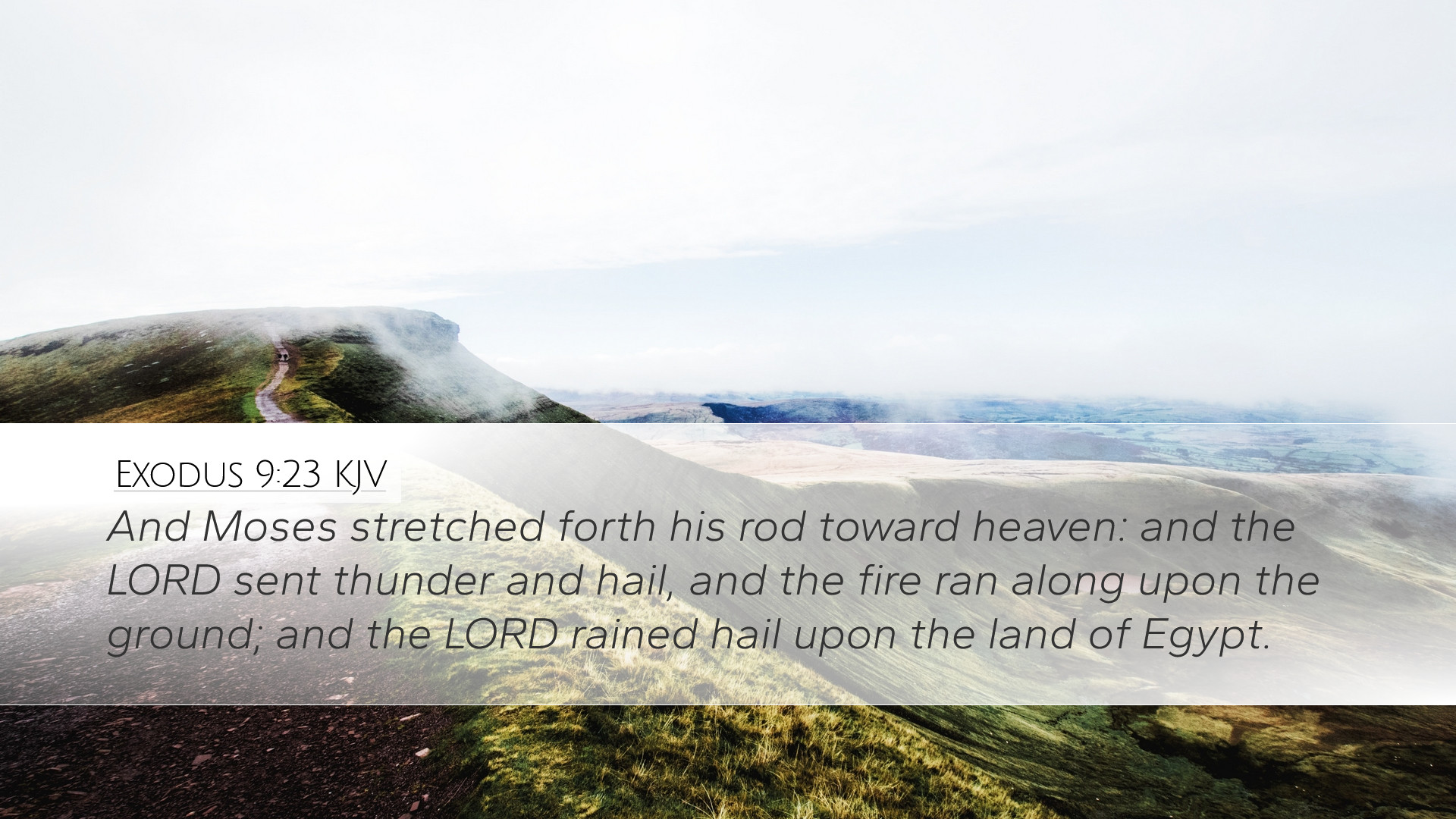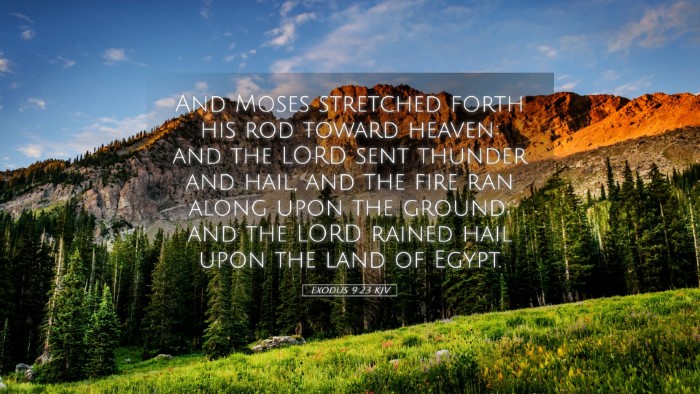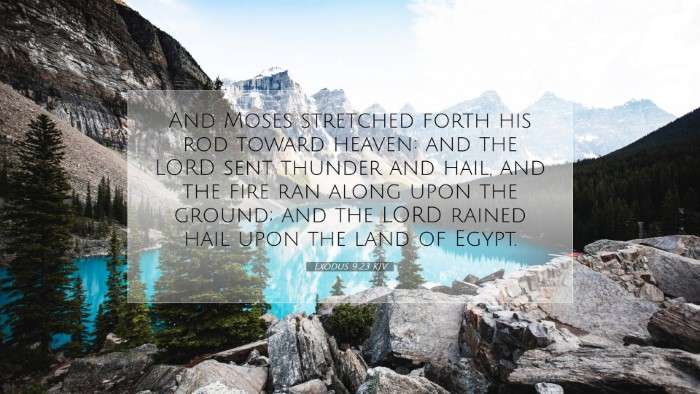Commentary on Exodus 9:23
Verse: "And Moses stretched forth his rod toward heaven: and the Lord sent thunder and hail, and the fire ran along upon the ground; and the Lord rained hail upon the land of Egypt." (Exodus 9:23)
Introduction
This commentary explores the profound event described in Exodus 9:23, where God demonstrates His power through a devastating plague of thunder, hail, and fire. The implications of this verse resonate deeply, revealing God's sovereignty, the seriousness of disobedience, and His unwavering commitment to His people.
Contextual Analysis
Exodus 9:23 sits within a sequence of divine plagues unleashed upon Egypt, a direct consequence of Pharaoh's hardened heart against God's command. The surrounding verses highlight the relentless struggle between divine authority and human rebellion. As noted by Matthew Henry, God's judgments serve both as a warning and a demonstration of His power, aimed ultimately at leading His people to repentance.
Insights from Public Domain Commentaries
Matthew Henry
Henry emphasizes the visibility and terror of the divine power unleashed in this event. The act of Moses stretching forth his rod symbolizes obedience and the invocation of God’s power. Henry points out that nature itself responds to God’s commands, illustrating the omnipotence of the Creator. The “fire ran along upon the ground” signifies God’s exacting judgment, indicating that His anger towards sin is as fierce as the fiery elements He controls.
Albert Barnes
Barnes elaborates on the significance of the hail and fire as a judgment specifically targeted at the Egyptians' agricultural livelihood. Hail was particularly destructive to crops, emphasizing the completeness of God’s judgment. Barnes posits that this act serves as both punishment and warning, calling the Egyptians—and particularly Pharaoh—to recognize the truth of the God of Israel. He also highlights the fear the event instilled in the Egyptians, which was part of God’s design to magnify His name.
Adam Clarke
Clarke delves deeper into the natural phenomena involved in this plague. He discusses the likelihood of such events occurring in nature but emphasizes the supernatural aspect due to their precise timing and intensity coinciding with Moses' command. Clarke’s commentary alludes to the theological implications of God’s unwavering insistence that His people be freed, reinforcing the notion of divine liberation and the ultimate message of hope amidst judgment.
Theological Reflections
Theologically, Exodus 9:23 illustrates key themes relevant for pastoral ministry and academic study:
- The Sovereignty of God: The unassailable might of God is clearly displayed. Everything in creation, including natural elements, is subjected to His rule.
- The Call to Repentance: Just as Pharaoh was confronted with the reality of God's power, modern-day readers are invited to consider their own responses to divine authority.
- Judgment and Mercy: While this passage describes a severe judgment, it simultaneously underscores the mercy God extends in delivering His people from bondage.
Practical Applications
For pastors and theologians, this verse serves as a poignant reminder of the seriousness of sin and the necessity of heartfelt repentance. The stark contrast between divine judgment and grace presents an essential teaching point:
- Encouraging Obedience: Believers are called to faithfully respond to God's commands, understanding that obedience leads to life and blessing.
- Understanding God’s Character: This passage allows for deep theological discussions about God's justice and mercy, aid in pastoral counseling and the teaching of congregations.
- Inspiring Fear of the Lord: A healthy fear of God can lead to a deeper love and reverence for His ways, fostering spiritual growth within communities of faith.
Conclusion
Exodus 9:23 is not merely a historical account but a profound declaration of God’s character and His dealings with humanity. The combination of power displayed through nature’s fury, alongside a call to repentance, offers timeless truths. As pastors, students, and scholars reflect on this verse, may it inspire a renewed commitment to understanding and proclaiming the majesty and mercy of God.


